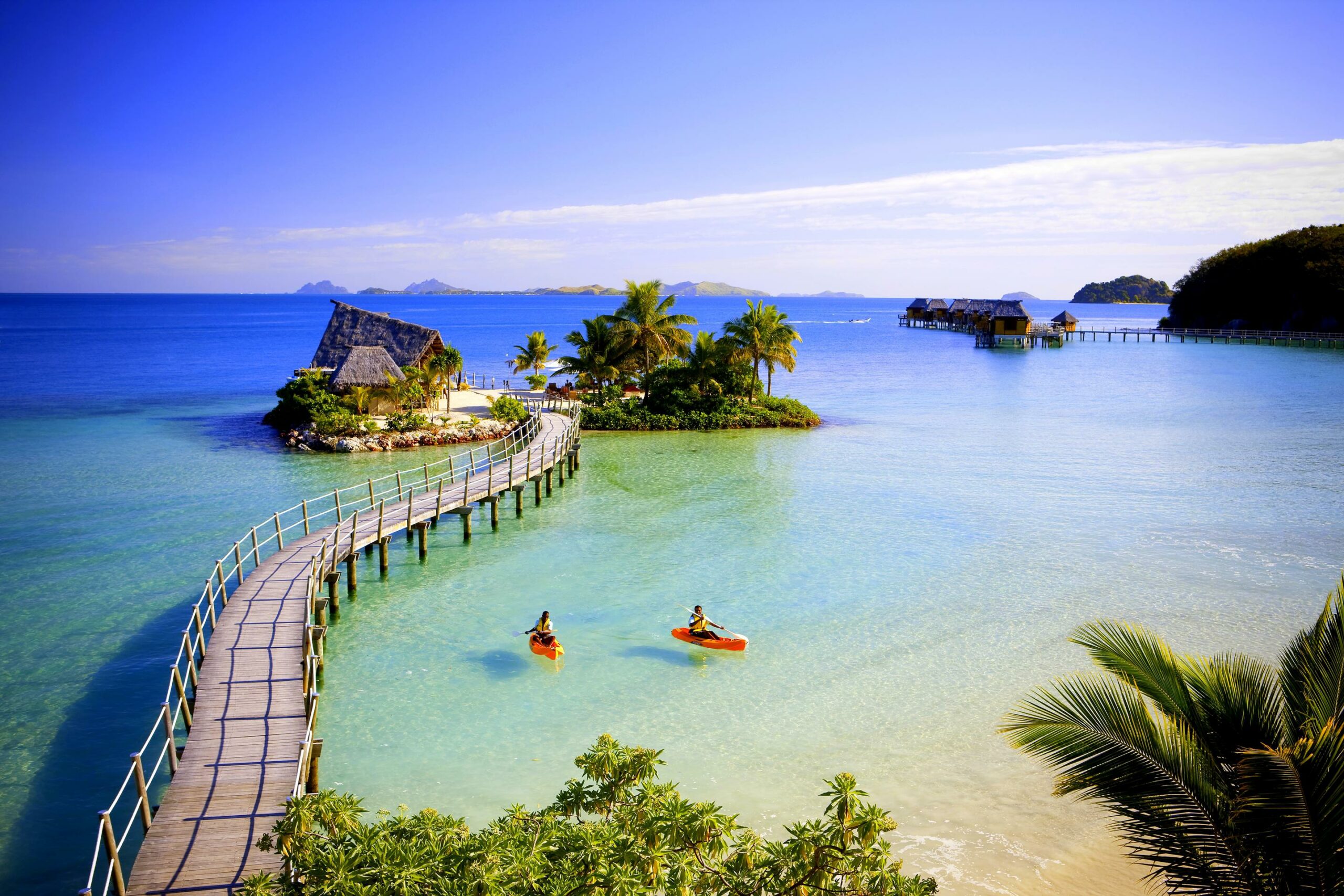Exotic places to vacation beckon with promises of adventure and cultural immersion. This exploration delves into diverse destinations, examining what constitutes “exotic” and offering practical guidance for planning an unforgettable trip. We’ll journey from breathtaking landscapes to vibrant cultural experiences, considering factors like accessibility, cost, and necessary preparations to ensure a safe and enriching adventure.
From the snow-capped peaks of the Himalayas to the sun-drenched beaches of the Maldives, the definition of “exotic” varies widely. This guide aims to broaden your perspective, showcasing a diverse range of locations that cater to different interests and adventure levels. We will cover everything from planning your trip and respecting local customs to understanding the unique challenges and rewards that await the intrepid traveler.
Geographical Locations
Exploring exotic vacation destinations unveils a tapestry of diverse landscapes, rich cultures, and captivating histories. This section details ten unique locations, highlighting their geographical distribution and defining characteristics. These destinations offer a glimpse into the world’s remarkable beauty and cultural heritage.
Exotic Vacation Destinations
The following table summarizes ten exceptional locations, categorized by continent, country, specific location, and defining characteristics. These locations represent a diverse selection of natural wonders, historical sites, and culturally significant areas.
| Continent | Country | Specific Location | Defining Characteristics |
|---|---|---|---|
| Asia | Japan | Kyoto | Ancient temples, traditional gardens, geisha culture, serene atmosphere. |
| South America | Peru | Machu Picchu | Inca citadel, breathtaking mountain scenery, stunning architectural ruins, rich history. |
| Africa | Tanzania | Serengeti National Park | Vast savanna, abundant wildlife (lions, elephants, zebras), incredible wildlife viewing opportunities, annual wildebeest migration. |
| Oceania | Australia | Great Barrier Reef | Largest coral reef system, vibrant marine life, diverse ecosystems, world-renowned scuba diving and snorkeling destination. |
| Europe | Greece | Santorini | Iconic white-washed villages, stunning caldera views, volcanic landscape, picturesque beaches. |
| North America | Canada | Banff National Park | Mountain scenery, turquoise lakes, glaciers, abundant wildlife (bears, elk), hiking and skiing opportunities. |
| Antarctica | Antarctica | Antarctica Peninsula | Unique icy landscapes, abundant wildlife (penguins, seals, whales), breathtaking glaciers, incredible adventure travel experiences. |
| Asia | Bhutan | Paro Valley | Stunning Himalayan scenery, ancient monasteries, unique Bhutanese culture, spiritual atmosphere. |
| South America | Brazil | Amazon Rainforest | World’s largest rainforest, incredible biodiversity, diverse ecosystems, opportunities for wildlife viewing and exploration. |
| Africa | Morocco | Marrakech | Vibrant souks (markets), stunning architecture, rich history, exotic spices and aromas, unique cultural experiences. |
Geographical Distribution of Exotic Locations
A map illustrating the geographical distribution of these exotic locations would show their global spread. Imagine a world map with pins marking each location. Kyoto, Japan, would be situated in East Asia; Machu Picchu, Peru, in the Andes Mountains of South America; Serengeti National Park, Tanzania, in East Africa; the Great Barrier Reef, Australia, off the northeastern coast of Australia; Santorini, Greece, in the Aegean Sea; Banff National Park, Canada, in the Canadian Rockies; the Antarctic Peninsula, Antarctica, at the northern tip of the Antarctic continent; Paro Valley, Bhutan, nestled in the Himalayas; the Amazon Rainforest, Brazil, covering a vast area of the Amazon Basin; and Marrakech, Morocco, in the northwestern part of Africa. Each pin would be accompanied by a brief description of the location, as shown in the table above.
Cultural Experiences
Exploring exotic locations offers a unique opportunity to immerse oneself in vibrant and diverse cultures. Understanding and respecting local customs is paramount to ensuring a positive and enriching travel experience, fostering meaningful connections with the communities visited and contributing to responsible tourism. Failure to do so can lead to unintentional offense and negatively impact the local population.
Experiencing the cultural richness of these destinations goes beyond simply sightseeing; it involves engaging with the local way of life, appreciating their traditions, and learning from their unique perspectives. This deeper level of engagement enriches the travel experience, fostering a greater appreciation for the world’s diverse cultures.
Unique Cultural Traditions and Practices
Many exotic locations boast unique cultural traditions and practices that have been passed down through generations. For example, in Japan, the intricate tea ceremony (chado) reflects centuries of ritual and mindfulness, while in Morocco, the vibrant souks (markets) offer a sensory feast of sights, sounds, and smells, showcasing the country’s rich trading history. In India, the Holi festival is a joyous celebration of color and spring, while in Bhutan, the Gross National Happiness index prioritizes spiritual and societal well-being over solely economic growth. These examples highlight the diversity of cultural expressions found around the globe.
Respecting Local Customs and Traditions
Respecting local customs and traditions is crucial for responsible travel. This involves researching the destination beforehand to understand local etiquette, dress codes, and social norms. Simple acts like dressing modestly when visiting religious sites, learning a few basic phrases in the local language, and being mindful of personal space can go a long way in demonstrating respect and building positive relationships with local communities. Avoiding disruptive behavior and participating in activities in a considerate manner further ensures a positive impact on the destination.
Authentic Cultural Immersion Activities
Understanding the importance of authentic cultural immersion, here are some activities that allow for deeper engagement with the local culture in various destinations:
- Japan: Participating in a traditional tea ceremony, visiting a local shrine or temple, and attending a Sumo wrestling practice.
- Morocco: Exploring the souks, attending a cooking class focused on Moroccan cuisine, and visiting a traditional hammam (bathhouse).
- India: Attending a local festival like Holi or Diwali, taking a cooking class focusing on regional Indian cuisine, and visiting a local village to experience rural life.
- Bhutan: Hiking through the stunning Himalayan landscapes, visiting ancient monasteries, and participating in a traditional Bhutanese dance performance.
- Peru: Participating in a Pachamama ceremony (an offering to Mother Earth), visiting a local market to experience Andean crafts, and attending a traditional Andean music and dance performance.
Practical Considerations
Planning a trip to an exotic location requires meticulous preparation to ensure a safe and enjoyable experience. This involves understanding and addressing several key practical aspects, from logistical arrangements to personal safety. Failing to adequately prepare can significantly impact the overall trip, potentially leading to unexpected expenses, inconvenience, or even danger.
Visa Requirements and Entry Procedures
Securing the necessary travel documents is paramount. Visa requirements vary drastically depending on your nationality and the destination country. Some countries offer visa-free entry for specific nationalities, while others require visas obtained well in advance of travel. For example, citizens of many European countries can enter Thailand visa-free for a limited period, while those from the United States require a visa. It is crucial to check the specific visa requirements of your destination country well in advance through the embassy or consulate website. Failure to obtain the correct visa can result in being denied entry, leading to significant disruption and financial loss. Additionally, understanding entry procedures, such as customs declarations and health screenings, will help ensure a smooth arrival.
Vaccinations and Health Precautions
Protecting your health is critical when venturing to exotic locations. Many regions have prevalent diseases not common in your home country. Consult your doctor well in advance of your trip to discuss recommended vaccinations and necessary preventative measures. Depending on your destination, you may require vaccinations against diseases like yellow fever, typhoid, or hepatitis A and B. Your doctor can also advise on malaria prophylaxis, if applicable, and provide guidance on food and water safety. For instance, travelers to areas with high malaria risk should take appropriate antimalarial medication and use mosquito repellent. Packing a well-stocked first-aid kit containing essential medications and supplies is also highly recommended.
Safety Precautions and Travel Insurance
Safety should be a top priority. Research your destination thoroughly, understanding local customs, laws, and potential risks. Be aware of petty crime rates and take necessary precautions to protect your belongings. Consider registering with your embassy or consulate upon arrival. Comprehensive travel insurance is essential, covering medical emergencies, trip cancellations, lost luggage, and other unforeseen circumstances. For example, insurance can cover emergency medical evacuation from remote areas, a significant expense that could otherwise severely impact your finances. Travel insurance provides peace of mind and financial protection against unexpected events.
Cost Comparisons Across Exotic Destinations
The cost of traveling to exotic locations varies significantly depending on factors such as the destination, travel style, and time of year. A trip to Southeast Asia, for instance, can be significantly more budget-friendly than a trip to the Maldives or the Galapagos Islands. Accommodation costs, transportation, food, and activities all contribute to the overall expense. Budget travelers can find affordable options in many exotic locations, while luxury travelers can expect to spend considerably more. Researching average costs for accommodation, food, and activities in your chosen destination will help you budget effectively. For example, comparing flight and accommodation prices across different platforms and during different seasons can help you find the best deals.
Essential Packing Checklist
Careful packing is crucial for a smooth trip. The following checklist includes essential items:
- Passport and visa
- Travel insurance documents
- Flight and accommodation confirmations
- Medications (prescription and over-the-counter)
- First-aid kit
- Insect repellent
- Sunscreen
- Appropriate clothing for the climate
- Comfortable walking shoes
- Adapter for electrical outlets
- Reusable water bottle
- Copies of important documents (stored separately)
- Small amount of local currency
Conclusive Thoughts
Ultimately, the allure of exotic vacations lies in the opportunity to escape the ordinary and embrace the extraordinary. By carefully considering the practical aspects of travel and approaching each destination with respect and cultural sensitivity, you can create memories that will last a lifetime. Remember, the most exotic locations are not just places on a map; they are experiences waiting to be discovered and cherished.




